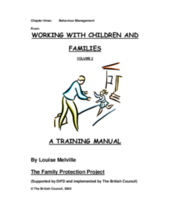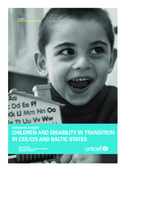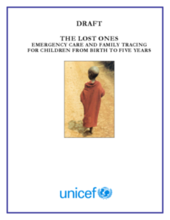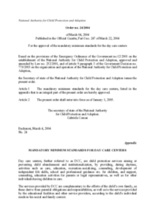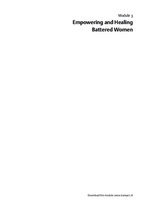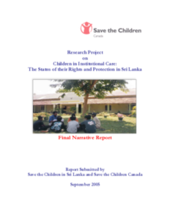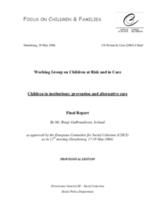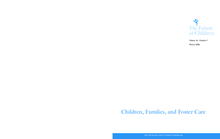Displaying 871 - 880 of 911
Guidance for caregivers and residential staff in Jordan on how to assess behavior problems in children and to manage them positively.
Report presents and analyzes new research and data around children with disabilities in the region, the effects of institutional care, and the need for family support services.
Guidelines for the care of young children separated from their families in emergencies. Includes detailed information on prevention of separation, child registration and documentation, and family reunification.
A brief document advocating for the strengthening and support of community based responses to children and families affected by HIV/AIDS in Africa.
Minimum standards for day care centers in Romania.
This document highlights a children’s saving program in the state of Missouri, USA. The five-year initiative focuses on increasing financial knowledge and self-efficacy, as well as saving accounts, among children and parents. The end goal is to increase student engagement in post-secondary education and training.
Training manual for a three-day course (targeted at care workers) on domestic violence. Focus on empowering battered women to find safety and regain control.
A situation analysis of children in institutional care that includes policy implications and key recommendations.
A comparative analysis of protection and care systems across Europe, focusing on the use of institutions, alternative forms of care placements, family support services, and the role of social workers in the process of child placement.
In assessing the practice of foster care in the US and its current limitations, this series of articles advocates for the implementation of health assessments for all children in care, support to preserve permanency and assist birth families, comprehensive supports for foster families, specialized services for children in need, increased cultural competency in social work practice, coordinated services across sectors for families in need and comprehensive well being assessments for children in care.

